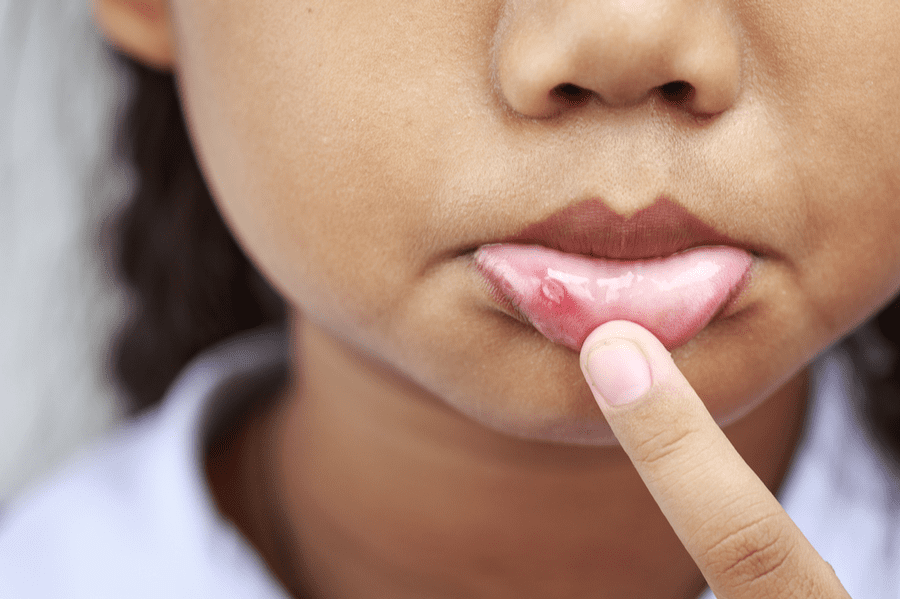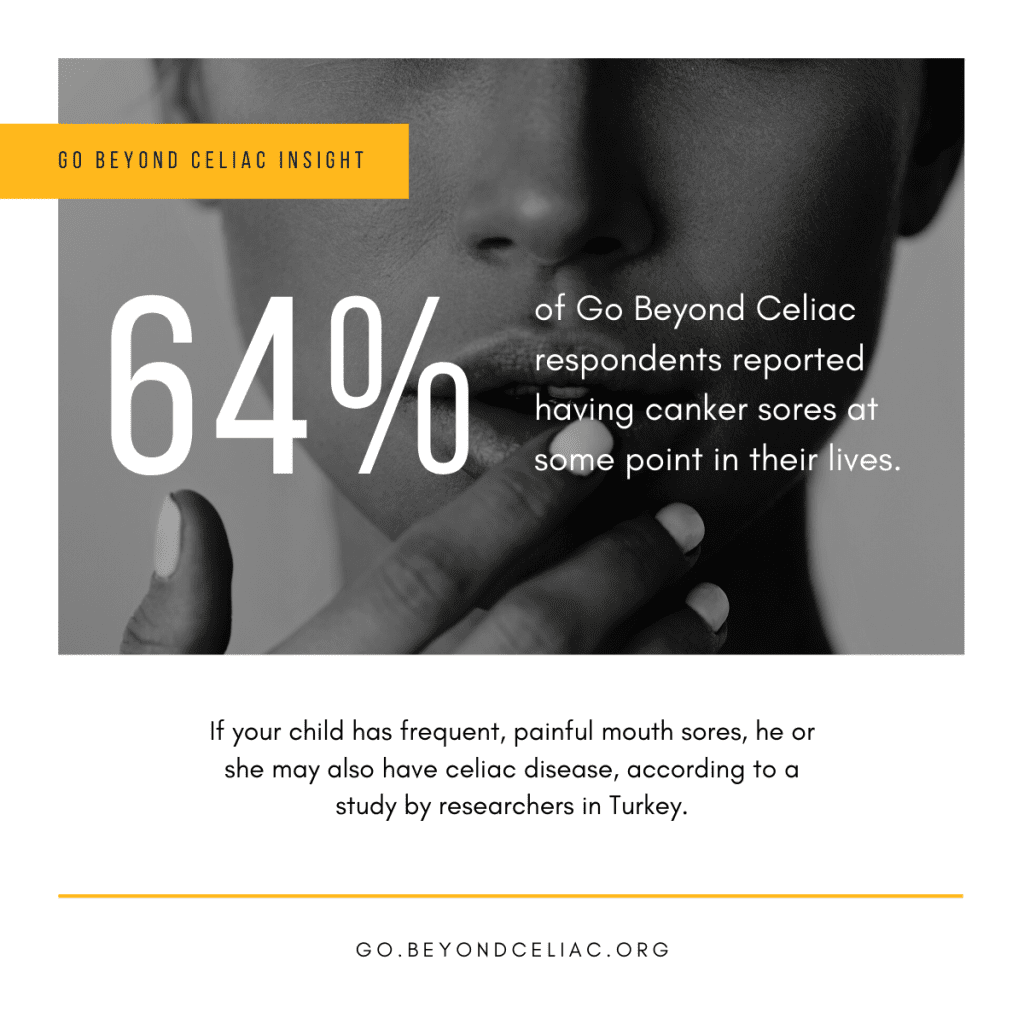Frequent, painful mouth sores can be a sign of celiac disease in children and adults

By Amy Ratner, Medical and Science New Analyst
If your child has frequent, painful mouth sores, he or she may also have celiac disease, according to a new study by researchers in Turkey.
The study found that nearly 3 percent of 108 children diagnosed with frequent canker sores, called recurrent aphthous stomatitis (RAS), also had celiac disease. That’s about six times the rate of celiac disease found in children overall in Turkey, says the study, published in the journal Pediatrics International.
 Canker sores are small ulcers with a red base and a yellow layer that can develop on the tongue or the inside of the cheeks and lips. The sores can come and go over time. RAS can affect any gender at any age; however, these sores occur more frequently in females, adolescents and children. About one in five people in the general population have RAS.
Canker sores are small ulcers with a red base and a yellow layer that can develop on the tongue or the inside of the cheeks and lips. The sores can come and go over time. RAS can affect any gender at any age; however, these sores occur more frequently in females, adolescents and children. About one in five people in the general population have RAS.
Earlier studies have shown that canker sores can also be a symptom of celiac disease in adults, sometimes the only symptom.
Participants in the recent study by researchers from Ankara University included children 6 months to 18 years who had at least three episodes of RAS over one year according to their medical records. Those who subsequently tested positive for anti-tissue transglutaminase IGA antibodies (tTG), which develop in reaction to harmful gluten protein in those who have celiac disease, had an endoscopy and biopsy. Three of the children were diagnosed with celiac disease based on biopsy results.
In addition to canker sores, the children in the study who were diagnosed with celiac disease had mild malnutrition, iron deficiency and iron deficiency anemia, the study found. Study authors called for celiac disease screening in children with these symptoms.
The children diagnosed with celiac disease went on a gluten-free diet, and in phone interviews six months later their parents reported a significant reduction in the frequency of canker sores.
Although the exact cause of recurrent canker sores is unclear, genetic predisposition, food allergies, viral and bacterial infections, vitamin, iron and other deficiencies and systemic diseases are all associated, the study says. “The presence of RAS may be related to an underlying inflammatory disease, such as celiac disease,” study authors wrote.
An 2009 study done by researchers in Iran found canker sores may be the only symptom in 5 percent of celiac disease patients. Authors of that study said celiac disease should be considered when patients present with recurrent canker sores that do not respond to conventional treatment.
Over two years, 247 patients, 11 to 40 years of age, who suffered from RAS were screened for celiac disease. Nearly three percent were diagnosed, triple the normal rate of diagnosis of celiac disease in the Iranian population. All of the patients who had both mouth ulcers and celiac disease, had recurrent canker sores for an average of 4.5 years and were unresponsive to previous treatments with conventional drugs. When a gluten-free diet was introduced for four of the patients studied, all showed significant improvement of RAS within two to six months. None of the study participants had gastrointestinal symptoms.
You can read more about the study here.
Opt-in to stay up-to-date on the latest news.
Yes, I want to advance research No, I'd prefer not to